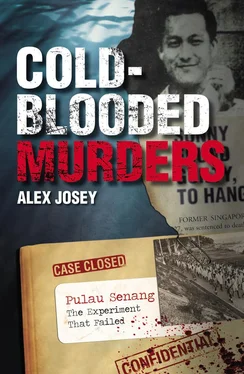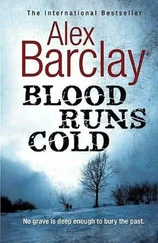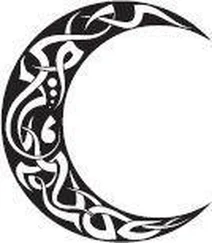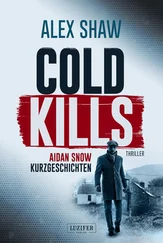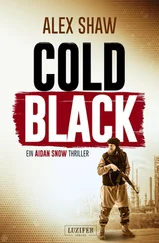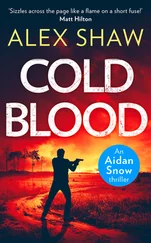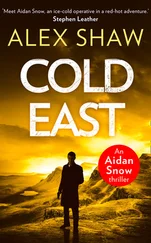Alex Josey - Cold blooded murders
Здесь есть возможность читать онлайн «Alex Josey - Cold blooded murders» весь текст электронной книги совершенно бесплатно (целиком полную версию без сокращений). В некоторых случаях можно слушать аудио, скачать через торрент в формате fb2 и присутствует краткое содержание. Жанр: Криминальный детектив, на английском языке. Описание произведения, (предисловие) а так же отзывы посетителей доступны на портале библиотеки ЛибКат.
- Название:Cold blooded murders
- Автор:
- Жанр:
- Год:неизвестен
- ISBN:нет данных
- Рейтинг книги:5 / 5. Голосов: 1
-
Избранное:Добавить в избранное
- Отзывы:
-
Ваша оценка:
- 100
- 1
- 2
- 3
- 4
- 5
Cold blooded murders: краткое содержание, описание и аннотация
Предлагаем к чтению аннотацию, описание, краткое содержание или предисловие (зависит от того, что написал сам автор книги «Cold blooded murders»). Если вы не нашли необходимую информацию о книге — напишите в комментариях, мы постараемся отыскать её.
Cold blooded murders — читать онлайн бесплатно полную книгу (весь текст) целиком
Ниже представлен текст книги, разбитый по страницам. Система сохранения места последней прочитанной страницы, позволяет с удобством читать онлайн бесплатно книгу «Cold blooded murders», без необходимости каждый раз заново искать на чём Вы остановились. Поставьте закладку, и сможете в любой момент перейти на страницу, на которой закончили чтение.
Интервал:
Закладка:
The End
When it was known that the Privy Council had rejected Ang’s appeal, friends and relatives at once began to organize a petition to President Yusof bin Ishak to spare his life. Late in October 1966, this petition, and a plea from Ang for clemency, were submitted to the President. The President must accept the advice of the Cabinet. On the last day of January 1967, Ang was told that President Yusof bin Ishak had rejected his appeal for clemency. He would be executed on Monday, 6 February.
Even then Ang did not abandon hope. He was planning a dramatic escape. During exercise time a helicopter would fly over the jail compound, with a rope dangling down, and Sunny would be whisked away to freedom. The coded letters failed to get to his accomplice.
On Friday he was told there was no hope. He accepted this unemotionally and requested the prison chaplain, the Rev. Khoo Siaw Hua, to baptize him. Then he wrote the chaplain the following letter: Dear Rev. Khoo, There is so much that I want to say to you but I am finding it very difficult to put my thoughts into words. So forgive me for this, my farewell letter, being so brief, and, 1 fear, incoherent. Do you remember the day you first saw me here, how I kept repeating to you ‘I’m an atheist!’, almost with pride? But as I watched you come here so often, spending so much of your time and giving so much of yourself to the Pulau Senang boys and the rest of us, expecting and receiving nothing in turn, I asked myself, ‘What is it that motivates this man to such altruistic acts? Is there really a God as he so undoubtedly believes?’ This, plus my brother Victor’s example, led me to spend hours on end pondering over the question of Life. Death, the Existence of God, truth of the Bible and other related matters, my mind ranging far and wide into hitherto unexplored realms. The conclusion I came to were foregone, but I still refused to open my heart to God as I had some unfinished business to carry out, viz. a vendetta. Months passed without any change: but one day, the 17th of December 1967-for no apparent reason I was overwhelmed by a desire to kneel down in prayer and pour out my heart to God, surrendering myself to Him and admitting to Him that revenge was in my heart He listened and understood and as I got to know Him better through the succeeding days and weeks, He told me that I should be above revenge and hate, that only love and understanding should occupy my thoughts and guide my actions. How I wish I could have met you in less tragic circumstances and derived the benefit of your courses. But I nevertheless thank you for everything you have done for me and will be doing for me in the next few days. Through you I found Christ and through Him I shall find the Kingdom of Heaven. We’ll meet again in happier circumstances. Till then, fare thee well. Yours in Christ Sunny Ang
Sunny Ang spent the last few hours of his life praying with the Rev. Khoo, and reading the Bible. The chaplain said, “We talked only about religion and nothing else. He was all the time calm and smiling.”
Ang was told that acccording to prison regulations he could have a last meal to the value of $5. He said, “I just want a nice cold glass of milk.” Milk is not a popular drink with Asians.
Shortly before dawn, Ang, apparently unrepentant and unafraid, walked steadily the 100 paces from his cell to the gallows. The noose was slipped around his neck, the trap-door opened, and at 5:55 AM, on the morning of Monday, 6 February 1967, Sunny Ang paid the penalty for his crime.
The hangman grimly closed the final chapter of a murder case that made legal history in Singapore. This had been the first murder trial without the body of the victim: it was the first time a man charged with murder had been found guilty entirely on circumstantial evidence. The case was also unusual in that it was a crime of coldly calculated murder for greed and gain, a crime in which the death of the victim, and not robbery, was the primary consideration.
At 9:00 AM, Juliet Ang, then recently admitted to the Bar, arrived at the prison in a car driven by a magistrate. She entered the prison and identified Ang’s body. Half an hour later she emerged and the car that brought her drove away. About the same time a van from the Singapore Casket Company arrived. Sunny Ang was buried at Bidadari Cemetery that afternoon.
Sunny Ang was a Chinese. The judge was born in Australia. The foreman of the jury (most of them Chinese) was a Dane. The prosecuting counsel was a Chinese, his assistant a Malay. Ang’s defence was conducted by two Indians. The witnesses were Chinese, Malays, Indians, Eurasians and Europeans. Evidence was given in Chinese dialects. Malay and English. Ang killed Jenny (a Chinese) when Singapore was a self-governing British colony. His trial began when Singapore was part of Malaysia, He was found guilty three months before Singapore was separated from Malaysia. Singapore had become an independent republic by the time his appeals were heard, and President Ishak rejected his plea for clemency. Justice Buttrose retired from Singapore in 1968 and went to live in England. He was the last of the British expatriate judges to serve in Singapore, where he had worked in the legal profession for 23 years. He became a High Court judge in 1957. The Chief Justice, Mr Wee Chong Jin, described Justice Buttrose’s retirement at the age of 65 as a ‘great loss, especially in that he was a judge with immense experience and knowledge, not only of the country’s laws, but also of the people’.
The Perfect Murder
Sunny Ang thought he had planned the perfect murder. He considered his execution an injustice because he had been found guilty for the wrong reasons. “I did not kill her that way. I killed her another way,” he told a visitor just before the end. “But I suppose it’s poetic justice,” he added with a grim smile, “that I should die.”
What he boasted he did was to give Jenny instructions, which if carried out properly, would inevitably have resulted in her death. He had told her, just before she descended, to take a deep breath, to fill her lungs completely, as she was about to surface. She was to hold that breath all the way up. The air in Jenny’s lungs would have distended with increased pressure thereby forcing air bubbles directly into her blood stream and eventually leading to obstructions in the blood vessels in her brain. Death would have been instantaneous.
Ang was a great reader. He had a passion for detective stories, a deep interest in psychology and law. He had a collection of law books. He also had many books on flying, and several Teach Yourself books, including books on chicken rearing, tomato planting and scuba-diving. In one book on scuba-diving the corner of a page had been turned down. There was a warning on this page against divers holding their breath when surfacing. The author warned that death had occurred this way.
This manner of death was set out in detail in Harrison’s Principle of Internal Medicine, 1963, which Sunny Ang had also read: This stated that, If a diver breathing compressed air holds his breath during ascent to the surface, the intrapulmonic (inside the lung) pressure becomes relatively higher than the hydrostatic (liquid or blood stream) pressure. A difference in pressure in excess of about 80 mm of mercury may overdistend the lungs so that gas is forced or aspirated (sucked) into the blood stream (traumatic air embolism). Gas emboli (bubbles) transported to the left ventricle (i.e. the heart) are disseminated to the central nervous system (i.e. the brain) to produce the most serious injury in diving. Fatal accidents have occurred during ascents from only 13 feet to the surface.
Ang intended that Jenny’s body should be recovered (so he said), for, he argued, a post-mortem could have shown only accidental death. No one could ever have accused him of being in any way responsible for this highly technical accident. He maintained that he had, in fact, made an earlier attempt, two days before, in the same boat, hoping, with many others around, to have the benefit of witnesses to testify to his innocence. Unfortunately that attempt failed (probably Jenny did not obey his instructions fully), though she complained of pains in her chest. On the fateful Tuesday he tried again hoping that her damaged lung condition would favour his plans. This time he succeeded. Jenny was never seen again.
Читать дальшеИнтервал:
Закладка:
Похожие книги на «Cold blooded murders»
Представляем Вашему вниманию похожие книги на «Cold blooded murders» списком для выбора. Мы отобрали схожую по названию и смыслу литературу в надежде предоставить читателям больше вариантов отыскать новые, интересные, ещё непрочитанные произведения.
Обсуждение, отзывы о книге «Cold blooded murders» и просто собственные мнения читателей. Оставьте ваши комментарии, напишите, что Вы думаете о произведении, его смысле или главных героях. Укажите что конкретно понравилось, а что нет, и почему Вы так считаете.
